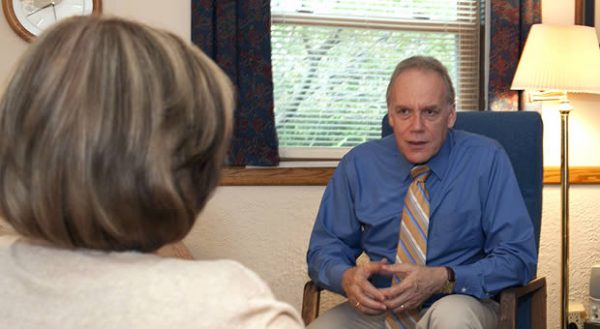Services Offered
I have been fortunate in that I have never had to carve out a narrow specialty to maintain a private practice. My patients come to me with a wide range of problems and concerns, and these varied experiences have broadened and deepened my understanding of how to solve the problems that keep people from being happy.
Still, as a generalist, I have certainly become most experienced with the more common types of presenting problems: relationship problems, child and teen behavioral problems, and emotional difficulties such as anxiety, depression and anger.
Marriage or Couples Counseling

About a third of my practice consists of marriage or couples counseling. I have found that there are at least 22 skills that both partners need to possess if a relationship is going to be able to thrive.
I have developed a one-page assessment for looking at couples’ strengths and weaknesses and this usually forms the basis of goal setting. You can preview that assessment in the Patient Handouts section of this website.
Here are some examples of commonly presented relationship problems:
- “When we argue it always gets out of hand.”
- “He’s so impatient with the kids I feel like I have to run interference.”
- “She’s always been incredibly jealous.”
- “He had an affair.”
- “We don’t seem to have anything in common except the kids.”
- “We’re best friends but the romance and passion have gone out of our relationship.”
- “I ask him about his day, but all he ever says is ‘Fine’.”
- “She’s not ever affectionate with me. She’s always on her phone.”
- “If it isn’t about sex, he’s not interested in me.”
Children & Teen Behavioral Problems

It is quite common to find that our children have developed an inflated sense of entitlement along with a diminished sense of responsibility. This leads to parent-child conflict, irresponsible behavior and academic underachievement. Getting these trends reversed is essential to reestablishing harmony in the household and setting our children up for success in school, careers and even in personal relationships. Achieving this generally requires an overhaul of how parents have been approaching child discipline. The principle way that children develop self-discipline is by being disciplined effectively. My approach is designed to get results with a minimum of drama. It works with children as young as two years of age, but it is powerful enough to work with older adolescents as well.
Even if your child or teenager has no interest in counseling, I routinely find that many common problems can be resolved based on plans that I develop by working directly with the parents.
You will find several documents in the Patient Handouts section of this website that further explain my approach. Examples of these types of problems include:
- Child and Adolescent Behavior Problems
- Academic Underachievement
- Assessment for Attention Deficit or Hyperactivity Disorder
- Mood Disorders (anxiety, depression and anger)
Emotional Difficulties such as Anxiety, Depression and Anger

About a third of my practice consists of what I call the “common colds” of outpatient psychotherapy; that is, anxiety, depression and anger. In many cases such problems can be addressed by considering the big picture question of what it takes to be happy.
I have developed an assessment which quickly leads to recommendations for rebalancing one’s life in the interest of achieving lasting happiness. Please refer to the downloadable document entitled Principles of Psychological Well-Being on the Patient Handouts page.
One of the most surprising developments in my practice in the past fifteen years has been the discovery of amino acid treatments. There are a number of nutritional supplements that offer remarkably effective alternatives to antidepressant and anti-anxiety medications. At last count, I have successfully treated over a thousand people for problems which, otherwise, would typically have resulted in the long-term use of prescription medications.
I also have specific solutions for a number of less common difficulties, such as:
- Major Depressive Episodes
- Bipolar Disorders
- Social Anxiety and Panic Attacks
- Obsessive-Compulsive Disorders
- Post-Traumatic Stress Disorder
- Anger Management Problems
- Addictions
Because I am a Tricare provider, who serves members of the U.S. Armed Forces, I have treated a large number of U.S. Military Service Members. Consequently, I have had a lot of experience addressing combat-related Post-Traumatic Stress Disorder (PTSD).
I’ve been using Eye Movement Desensitization and Reprogramming therapy (EMDR) for both military and civilian PTSD for over twenty five years, and have developed a number of significant innovations to this technique including the use of an app on a mobile phone which allows patients to employ this therapy on their own.

